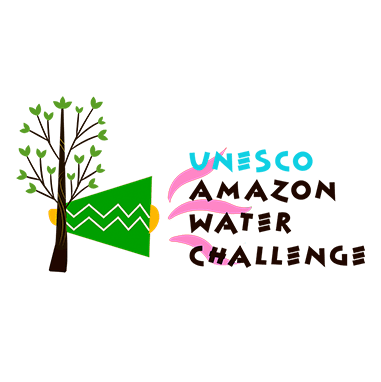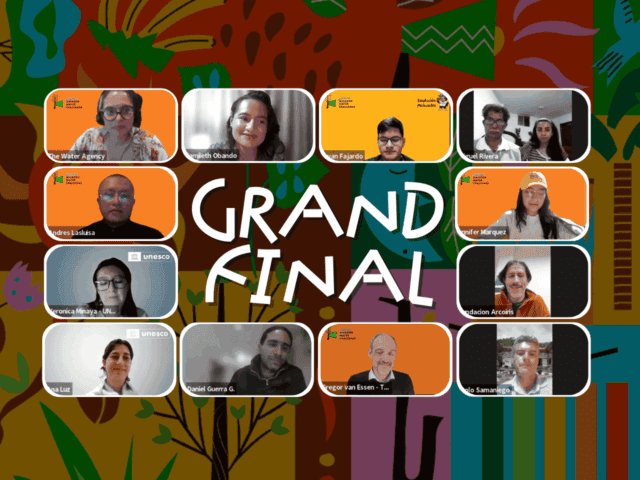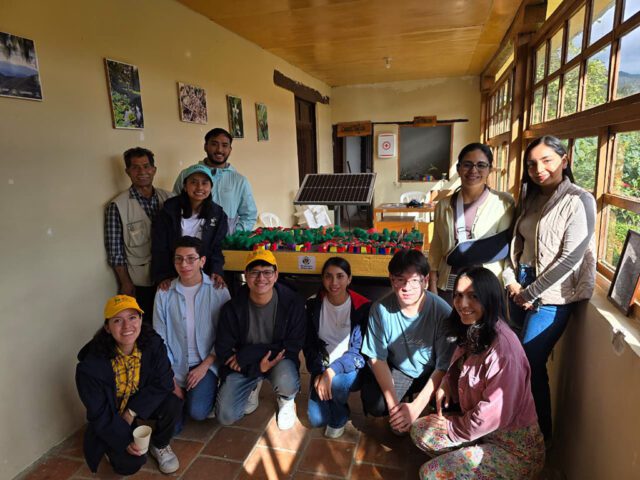As part of the implementation stage of the UNESCO Amazon Water Resilience Challenge 2025 – Ecuador Edition, three winning teams were selected to bring their proposals to life. Each received seed funding and expert mentorship to develop practical, community-driven solutions for water resilience. One of these inspiring projects is Zumbi Resiliente – Agua para la Vida, implemented in the Playas de Cuje neighborhood, in the town of Zumbi, Zamora Chinchipe province.
Restoring Access to Safe Water
Zumbi, the capital of the Centinela del Cóndor canton, has long struggled with limited access to clean and safe water. Heavy rains often damage the water intake system, interrupting the drinking water supply and leaving families in vulnerable conditions. Although irrigation systems for agricultural production (especially cocoa) are well maintained, drinking water infrastructure remained fragile.
To respond to these challenges, the project focused on improving the community’s water infrastructure, restoring ecosystems, and strengthening local capacity for sustainable water management. The team worked closely with local authorities, community associations, and environmental institutions to implement both technical and nature-based solutions.
From Infrastructure to Community Action
Key actions included the construction and improvement of the water intake with a sand separator system, and the cleaning and rehabilitation of the damaged water storage tank. To protect this infrastructure, community members carried out reforestation and the creation of living fences around strategic areas of the watershed.
The team also organized workshops to exchange knowledge, raise awareness on reforestation, and discuss water conservation practices. Throughout the process, local actors including GAD de Centinela del Cóndor, Prefectura de Zamora Chinchipe, MAATE (Ministerio del Ambiente, Agua y Transición Ecológica), Universidad del Azuay, and Comunidad de Zumbi y Asociación ASOPROMAS provided essential support through technical guidance, logistics, and plant donations.
A Stronger, More Resilient Zumbi
The project benefited around 80 households, improving water quality and reliability for families, women, and children. Beyond infrastructure, it fostered a deeper sense of community ownership and stewardship toward local water resources.
With restored ecosystems and strengthened local capacities, Zumbi is now more resilient to heavy rains and better prepared to manage its water sustainably.





